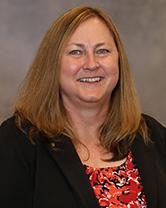 I’m always intrigued by the stories I hear from individual members about how they decided to become safety professionals. The paths I have heard about are many and varied. My own journey started with an internship in the insurance industry while
completing my degree in human factors engineering. Even then, I knew the safety profession would provide different challenges and opportunities each day.
I’m always intrigued by the stories I hear from individual members about how they decided to become safety professionals. The paths I have heard about are many and varied. My own journey started with an internship in the insurance industry while
completing my degree in human factors engineering. Even then, I knew the safety profession would provide different challenges and opportunities each day.
Our member research indicates that about 40% of OSH professionals travel a traditional education pathway from K-12 to postsecondary education and beyond. The remaining 60% enter our profession from a nontraditional path, coming into safety from other
disciplines. Let’s take a closer look at these paths.
One way into OSH is to earn a safety-related academic degree from one of the 23 ABET-accredited institutions or one of the more than 150 institutions that offer these degrees in the U.S., many of which have earned qualified academic program (QAP)
status from BCSP. Prospective students ultimately select their institution based on a broad range of factors, with location, cost and peer/mentor recommendations often being most important.
Other known routes into our profession include earning an academic degree in an affiliated discipline; earning an academic degree in an unaffiliated discipline but finding an opportunity to apply key skill sets to OSH-related tasks; transitioning from
military service; completing a 2-year safety-related degree program; or being a team member recruited by an organization to perform OSH-related activities based on skill set, interest or similar factors.
Regardless of the path followed, all OSH practitioners need additional education specific to their role or industry sector and to support their continued career advancement. We must meet our current and future members where they are in their career progression
to help develop a sustainable pipeline of high-quality OSH professionals serving business and industry. To do this strategically, we must take broader approaches to education that promote lifelong learning and encompass stages of learning across academia,
career development or career change, certificate programs, and professional certification.
In addition, the world of work continues to evolve. Who is performing work, as well as where and how it is performed will continue to transform. This trend has significant implications for when and where students, our future members and leaders, as well
as our current members and others in the OSH community seek their education and continued professional development.
As the Board of Directors and key stakeholders evaluated these facts and reviewed these trends, we recognized the Council on Academic Affairs and Research (COAAR), which we formed in 2018 to address career development and similar issues, was not working
as imagined. Our subsequent business review concluded this was due primarily to the fact that the Board of Directors did not create clear, measurable expectations for the council and did not accurately assess and assign it sufficient resources.
This finding informed two recent business and strategic decisions:
1. The Board of Directors has dissolved COAAR and its committees on research and educational standards. The important work of these committees, particularly as it relates to topics such as ABET accreditation, education standards and dissemination of safety
research, will continue in more effective and efficient ways that better align with our strategic goals and business processes. Please see our answers to several frequently asked questions at https://assp.us/COAAR22.
2. The ASSP Foundation has launched a workforce development project that will include the development of a comprehensive educational framework to aid learners across the career spectrum. We are forming a task force to help model, revise and promote flexible
and adaptable education pathways grounded in industry standards that respond to labor market needs and the shifting world of work. You can learn more about this group and the opportunity to volunteer at https://assp.us/ASSPFT-F.
We believe these decisions and our commitment to creating a powerful career resource will improve our ability to develop a safety workforce that is more inclusive and more impactful to our mission to create a safer, stronger future for all.